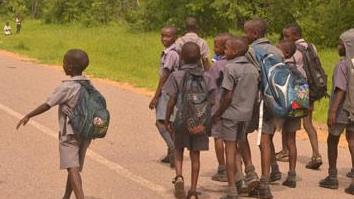
OPPOSTION MDC-T shadow Basic Education minister Concilia Chinanzvavana has claimed that the Basic Education Assistance Model (Beam) scheme is being abused by top Zanu PF officials to benefit their children. Chief Reporter
Chinanzvavana’s claims followed revelations last week that nearly a million pupils risk dropping out of school owing to financial constraints after the government and donors cut funding for Beam.
The government intended to fund 750 000 primary and 250 000 secondary school students this year, but $15 million was made available by Finance minister Patrick Chinamasa in this year’s budget.
This means that 167 000 targeted secondary school pupils and 750 000 at primary school pupils will miss out unless funding is secured. Chinanzvavana blamed Zanu PF for the challenges bedevelling Beam saying they were caused by corruption.
“The MDC is extremely perturbed that over one million disadvantaged students may not enrol for school this year as a result of the failure by the Zanu PF government to provide money for Beam,” she said in statement.
“This failure to provide money for Beam is as a result of the massive corruption that saw children of Zanu PF chéfs benefiting from this scheme ahead of the poor and deserving students.
“It is also as a result of Zanu PF’s failure to run this economy due to its pursuit of ruinous and failed policies” she added.
Chinanzvavana said there should be unconditional enrolment of all disadvantaged students and pupils this year.
- Chamisa under fire over US$120K donation
- Mavhunga puts DeMbare into Chibuku quarterfinals
- Pension funds bet on Cabora Bassa oilfields
- Councils defy govt fire tender directive
Keep Reading
“This fundamental right is not negotiable and no person including the government is allowed to abrogate this right,” she said.
“Zimbabweans must unite in spite of their political affiliations to make sure that this right is protected.”
She said the whole education system was now in a serious crisis. The Primary and Secondary Education ministry was allocated $865, 669 million in this year’s budget against its bid of $1,2 billion.
“Although this is 20% of the total national budget, it is of concern that 95% of this amount, which is $828,340 million will go to employment costs leaving only about 3,3% to cover for operational costs such as the provision of material resources and infrastructural development,” Chinanzvavana added.










